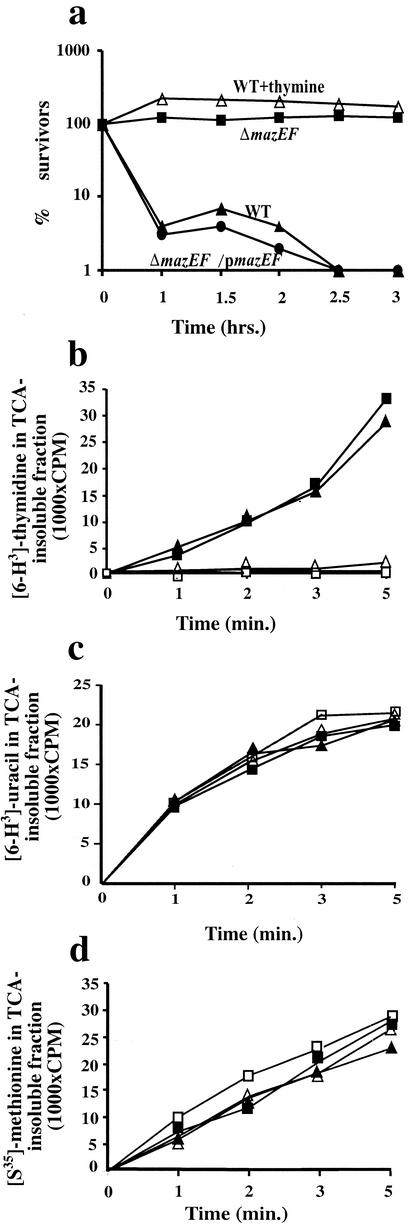FIG. 1.
(a) Thymine starvation by trimethoprim in E. coli induces mazEF-mediated cell death. Cells were grown at 37°C in M9 liquid minimal medium plus 0.1 μg of trimethoprim/ml as described in Materials and Methods. Viability (% survivors) is plotted against the time of exposure to trimethoprim of E. coli MC4100relA+ (WT), MC4100ΔmazEFrelA+ (ΔmazEF), and MC4100ΔmazEFrelA+/pmazEF (ΔmazEF/pmazEF). MC4100relA+ was also grown in thepresence of 0.1 μg of trimethoprim/ml plus 50 μg of thymine/ml (WT+thymine). We calculated cell survival by comparing the colony-forming ability of trimethoprim-treated cells to that of untreated cells at zero time. The numbers represent the results of one out of five similar experiments. (b to d) Effect of thymine starvation on the synthesis of DNA (b), RNA (c), and protein (d) in MC4100relA+ and its ΔmazEF derivative. Cells were grown at 37°C in M9 liquid medium as described in Materials and Methods. After overnight growth, the cultures were diluted to 107 cells/ml and allowed to grow for 1 h in M9 medium plus inosine (50 μg/ml). Then, trimethroprim (2 μg/ml) was added; the cells were immediately labeled with either [6-3H]thymidine (b), [5,6-3H]uracil (c), or [35S]methionine (d); and their incorporation into the acid-insoluble fraction was determined as described in Materials and Methods. As controls, we used MC4100relA+ (▴) and its ΔmazEF derivative (▪) without the addition of trimethoprim. ▵, trimethoprim-treated MC4100relA+; □, ΔmazEF derivative.

